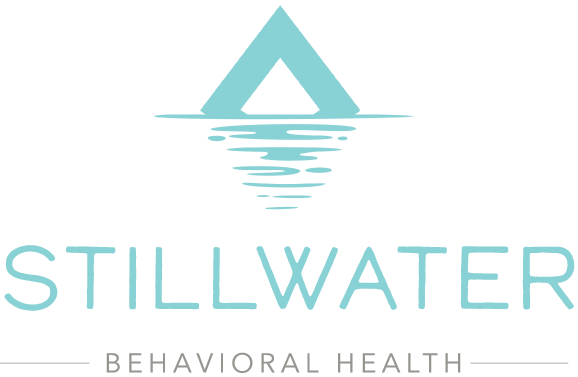Heroin Addiction Treatment Center In Southern California
Heroin is one of the most abused substances in the United States. Learn more about treatments in this article.
What is Heroin?
Heroin is an addictive drug made from morphine, which is found naturally in certain opium poppy plants. It can appear in many different forms, either as a powder or a sticky, sap-like substance and can be white, brown, or black. It is an extremely addictive drug, but heroin addiction treatments are available.
Questions about addiction?
Call Us Now: 1-866-232-9103
Your call is confidential with no obligation required to speak with us.
How Addictive is Heroin?
Due to heroin’s ability to reduce pain and elicit feelings of euphoria, it is a highly addictive substance that can cause dependency. Addiction can occur before substance abuse becomes a regular occurrence and can result in various medical emergencies.1
Drug Class
As a derivative of morphine, heroin is classified as an opioid. Opioids can either be natural, like heroin, or synthetic, such as fentanyl. While not all opioids are illegal—in fact, many opioids such as oxycodone are useful in a medical setting for alleviating pain—many types are.
Opioids work to alleviate pain by interacting with receptors on nerve cells in the body, specifically in the brain. As a result, heroin effects can include
- Drowsiness
- Decreased thoughts
- Reduced pain
- Feelings of euphoria
Due to their pain-relieving qualities and ability to produce euphoria, they are commonly abused. In 2019, 49,860 overdose deaths were caused by opioids.2
Many of these opioids were heroin overdoses.
Drug Schedule
Heroin is a Schedule I substance. Substances that fall into this category included ecstasy, marijuana, and dozens of other substances. Those categorized into Schedule I have been deemed to have no accepted medical use in the United States.
Due to their addictivity and impact on the brain and body, Schedule I substances have an increased risk for causing the development of addiction or a substance use disorder.
Street Names
There are many street names for heroin. Some of these include
- Dope
- White
- China White
- Hero
- Black Tar
- Black Pearl
- Snowball
- Tar
Many of these heroin street names are derived from how the substance is abused, which includes smoking heroin and snorting heroin.
Treatment for Heroin Addiction in Southern California

Heroin addiction can be dangerous and can increase the risk of medical emergencies such as seizures, coma, and overdose. However, there are many forms of heroin addiction treatment available that can provide multifaceted recovery. By addressing both the causes, effects, and sources of addiction, treatment can help promote a healthier lifestyle.
Detox
Drug detox is the first and one of the most important aspects of heroin addiction treatment. Drug detox, or detoxification, is a period of rest in which the body is allowed to metabolize and process any traces of the substance left from the last dosages.
While it is important in seeking long-term recovery, drug detox should be undergone in a medical setting. Not only does it have the potential to be dangerous, but it also can result in withdrawal. Heroin withdrawal is a series of symptoms that occurs as the body reverts to its natural chemistry, which often requires a drop in dopamine and other elevated chemicals.3
Medication-Assisted Treatment
Medication-assisted treatment, also known as MAT, is a form of treatment often used simultaneously with therapy to address the symptoms of substance use disorder and withdrawal while providing the tools for long-term care.
Heroin withdrawal can cause severe physical and psychological disciform that can make recovery difficult. MAT is designed to address these concerns without aggravating the condition, resulting in an improved rate of recovery.
Medicines such as buprenorphine, methadone, and naltrexone are used to treat opioid use disorders specifically. These substances reduce heroin withdrawal symptoms while also negating many heroin effects that lead to its abuse.
CBT
Cognitive-behavioral therapy is one of the most popular therapies utilized in the treatment of substance use disorders. Like many forms of therapy, CBT is designed to provide new perspectives and coping mechanisms that aid in the success of long-term recovery and treatment of a substance use disorder.
Substance use disorders can impact how the brain perceives certain situations and interactions, and CBT can be beneficial for correcting these potentially harmful pathways.
How Long Will It Take to Get Through Heroin Detox?
The drug detox timeline depends on many factors both pertaining to the individual as well as the substance abused.
Type of Substance
Certain substances will have a different chemical makeup, meaning that they may have the potential to last longer in the body.
Heroin detoxification depends partly on the half-life of the substance. A half-life is the amount of time it takes for exactly half of the initial dosage to remain. When more of a substance is in the body at once, the heroin detoxification can take longer.
Duration of Addiction
The longer an addiction or substance abuse disorder has occurred, the more the body has adapted to the altered state caused by a drug. It can not only increase the duration of drug detox but may also increase the severity of withdrawal.
Severity
The body is only able to metabolize and eliminate a certain amount of a substance at a time. As a result, when a substance use disorder is more severe, it may result in increased abuse. More abuse can create a higher amount of heroin in the body, which will take longer to fully detox.
Method of Abuse
Different forms of abuse can impact the body in different ways. When a central-nervous stimulant is snorted, as an example, it can have a greater impact than other means of abuse, which can cause a greater change in brain chemistry and overall increase the severity of the addiction.
Family History
Family history can play one of the biggest roles in substance abuse disorders and the development of addiction. Those who have had family members, especially close family members, have a higher risk of disorders relating to substance abuse. This issue can be due to higher rates of exposure and access as well as genetics.
Genetics
The role of genetics in addiction and treatment is a common trope in scientific studies.4 Many of these studies have lent to the idea that genetics plays a large role in how a body reacts to a substance, including how it retains and eliminates certain substances.
Underlying Medical Conditions
Heroin substance abuse and consequently heroin addiction can occur as the result of an underlying medical condition, often called a co-occurring condition. It can include both physical and mental disorders.
Heroin Relapse Prevention

After recovery, it is essential to continue heroin addiction treatment methods such as therapy as well as new methods to prevent relapse. Co-occurring disorders or a family history of drug addiction and substance abuse disorders can make relapse a more common part of treatment.
However, relapse is a part of the chronic illness that is a substance use disorder and can occur to anyone, which is why recognizing the warning signs and developing a heroin relapse prevention plan is important.
Causes of Relapse
Relapse can occur as a natural result of a substance use disorder classification as a chronic illness. However, it can also occur in response to triggers, such as a trauma response, peer pressure, or other daily stress-causing factors.
Opioids like heroin have a higher rate of relapse during the alcoholism treatment process, which is due to how it impacts the body and alters brain chemistry.5
Relapse Warning Signs
- Change in attitude
- Change in behavior
- Overconfidence
- Isolation
- Self-harmful practices such as neglecting hygiene and intentional isolation
- Increasing access to substances
Creating a Relapse Prevention Plan
After heroin detoxification, one of the first steps in pursuing long-term recovery from heroin addiction is creating a relapse prevention plan. A relapse prevention plan is a way to reduce the risk of substance abuse after heroin addiction treatment. It involves identifying high-risk situations and creating an active course of action to avoid relapse during exposure to triggers.
Often, therapy and counseling can be significant tools in creating a relapse prevention plan.
Assess History with Drugs and Alcohol
While family history plays a large role in addiction and recovery, so does individual history with drugs and alcohol. Different backgrounds may present different, unique challenges. As a result, assessing this background can help create a relapse prevention plan tailored best to the individual to address their needs and triggers.
Determine Relapse Signs
Learning to recognize heroin addiction relapse signs can provide the opportunity to address and explore substance abuse concerns in a safe environment. Relapse signs may vary between individuals.
Establish the Actions to Take to Avoid Using
Maintaining recovery is an active journey that involves making informed decisions and choices. As a part of a relapse prevention plan, it is important to consider and account for all situations where use may occur.
However, when uninformed exposure to a substance happens, it is also vital to be prepared to commit to a course of action to leave the situation and avoid use. It can also occur on a small scale, such as removing supplies from the home.
When to Seek Treatment for Heroin Addiction
It’s important to seek help for heroin addiction as soon as possible. Heroin addictions develop quickly and using the drug at any point presents immediate life-threatening risks—such as overdose.
You may require professional care if you need more heroin to feel its effects, engage in risky behaviors to obtain the drug, or the substance abuse is jeopardizing your personal relationships and daily responsibilities. You may also be disrupted by common heroin addiction symptoms—such as mood swings, disorientation, hallucinations, paranoia, decreased personal hygiene, sleep problems, poor respiratory health, and weight loss.
Other signs of addiction include trying to stop or reduce use unsuccessfully. In many cases, these attempts lead to withdrawal symptoms—such as sweating, shaking, anxiety, or nausea.
If you notice any of these signs, it’s time to seek help from a heroin addiction treatment center. Southern California is home to many leading providers to assist with the process in a safe, timely manner.
Why Is a Heroin Addiction Treatment Program Needed?
Professional heroin addiction help from a qualified treatment program is essential because of the drug’s severe withdrawal symptoms. When people try to detox from heroin independently, they can experience a wide range of painful and debilitating withdrawal symptoms for weeks. The intensity of withdrawal often leads to the individual turning back to heroin use for relief.
With guidance from a heroin addiction treatment center in Southern California, working through the withdrawal process is much easier. Treatment programs, such as those provided by Stillwater Behavioral Health, use medication-assisted treatment (MAT) to minimize withdrawal symptoms, as well as monitor client health to ensure a safe and complete detox.
How Do I Know If Heroin Rehab Is Right For Me?
Heroin rehab in Southern California is usually the best solution if an addiction to the drug is negatively impacting your health, relationships, psychological well-being, financial wellness, or safety.
If you’ve tried other forms of recovery—such as outpatient care—with limited success, a more comprehensive residential rehab treatment could provide the additional support you need for lasting sobriety.
What to Expect From Our Heroin Addiction Treatment Center In Southern California
Stillwater Treatment Center is more than a heroin detox center in Southern California. Our compassionate, experienced team provides holistic care that helps people take steps to heal pain, develop stronger connections with others, and establish a strong foundation for life in recovery.
As a client, you can expect 24-hour medical, psychological, and spiritual support from our addiction specialists. In addition to MAT services for heroin addiction, these professionals will see you as an individual and learn about your situation without judgment.
Through your individualized treatment plan, our experts will help you gradually rebuild with a variety of approaches—including therapy, nutrition, physical wellness, counseling, and group work. Our programs also serve as luxury dual diagnosis treatment centers, allowing clients to address both addiction and co-occurring mental health diagnoses—such as depression, anxiety, or PTSD—at the same time.
While you receive top-tier heroin addiction help, you’ll also be able to focus on your recovery in a peaceful environment away from distraction. Our residences are situated in breathtaking locations that offer tranquil, natural surroundings. Our homes are also equipped with first-rate amenities—such as private bedrooms, chef-prepared meals, swimming pools, fitness areas, and flat-screen TVs—to make your recovery as comfortable as possible.
Does Insurance Cover Meth Addiction Treatment
Stillwater Treatment Center aims to provide exceptional heroin addiction support that is also affordable. That’s why our team works with many insurance providers to maximize coverage and minimize the costs clients have to pay out-of-pocket.
Many major insurance providers that offer out-of-network benefits—such as those with PPO and POS plans—will offer some level of coverage for our services. Some popular providers we work with include Aetna, Anthem, Beacon, BlueCross/BlueShield, and Cigna.
Currently, we do not accept Medi-Cal, Medicaid, Medicare, or HMO plans. However, we do offer cash payment options and are willing to work out plans that suit both the client’s recovery and financial needs.
Get Help for Heroin Addiction Today
The hurdles of heroin addiction aren’t easy to climb alone. But by seeking care from Stillwater Treatment Center, you can clear a path with compassionate support from top addiction specialists. If you’re ready to embrace a new beginning, call our 24-hour line at (866) 516-8936 to speak with a friendly team member about the many ways we can help.
FAQs About Heroin Addiction Treatment
Inpatient heroin addiction treatment involves round-the-clock care within a safe residential environment. In these programs, individuals receive all they need—such as room and board—to stay focused solely on recovery and establish a strong foundation for lasting sobriety.
Outpatient heroin addiction treatment, on the other hand, is more flexible. The client does not live within a residence during treatment. Instead, they make regular appointments with a provider that oversees the detox and recovery progress. While in treatment, the individual can still tend to other matters in their daily life and follow their own schedule.
Heroin addiction treatment offers much better results than “cold turkey” approaches. The specific levels of effectiveness, however, depend on the individual’s needs and the type of treatment plans that a provider offers.
Typically, inpatient heroin addiction programs deliver a high rate of effectiveness—especially when they offer both medication-assisted treatment for detox and individualized therapy for post-detox recovery. While relapse is always a risk after treatment, a dependable inpatient provider teaches clients how to recognize early warning signs and seek help to reestablish sobriety.
If someone you love is struggling with heroin addiction, provide support with compassion and without judgment. You can help by locating a suitable heroin addiction treatment center in Southern California and encouraging them to get into a program.
It’s important to understand that not everyone facing addiction will be able to recognize the issue or want to seek help. In these cases, it’s best to seek support from an intervention specialist who can serve as a mediator to encourage a person to seek treatment.
Always remember that this is not a challenge you have to face alone. Addiction recovery providers are here to provide answers to your questions and help you form a plan to help your loved one. Whatever stage you’re at in the process, we at Stillwater are here to help provide insights on everything you might be wondering—including “How long does heroin stay in your system?,” “How can I arrange an intervention?,” or “What are the different forms of therapy used in recovery?”
Resources
- https://www.ncbi.nlm.nih.gov/pmc/articles/PMC2851054/
- https://www.cdc.gov/drugoverdose/deaths/index.html
- https://www.drugabuse.gov/publications/research-reports/heroin/effects-of-heroin-on-body
- https://www.drugabuse.gov/publications/drugfacts/genetics-epigenetics-addiction
- https://www.ncbi.nlm.nih.gov/pmc/articles/PMC5688890/







